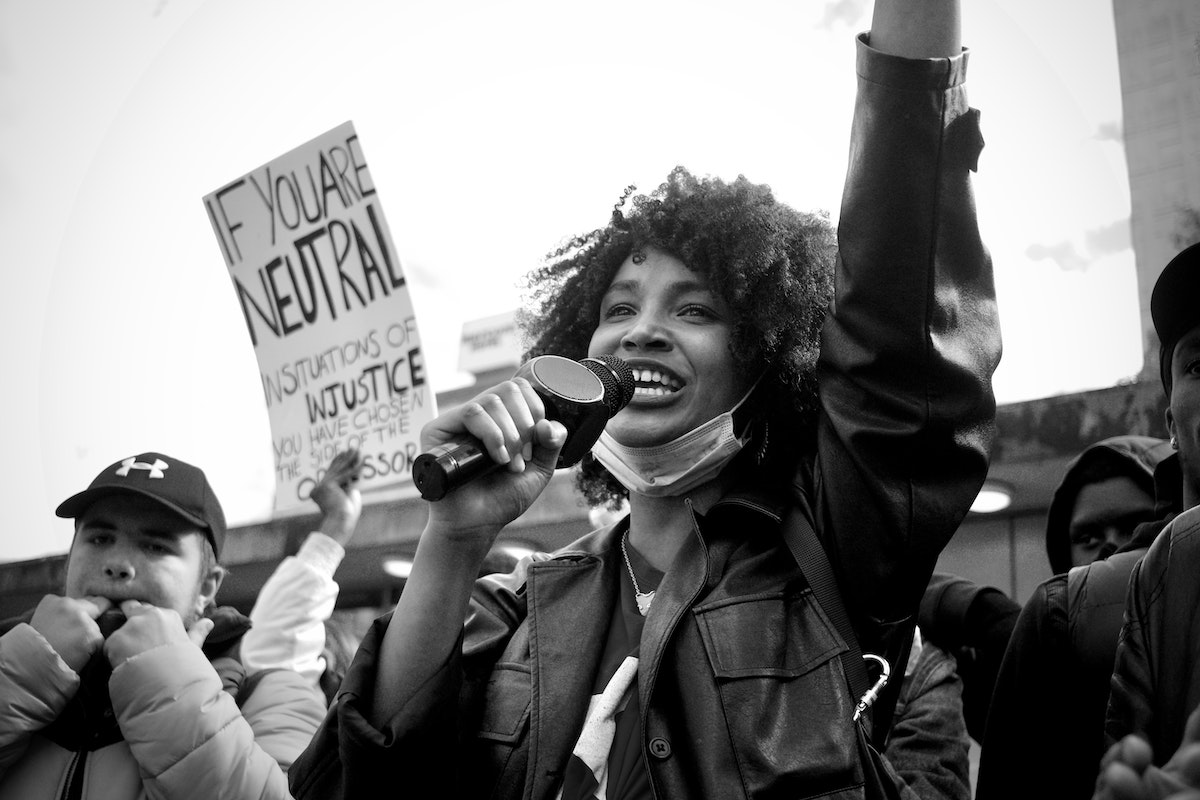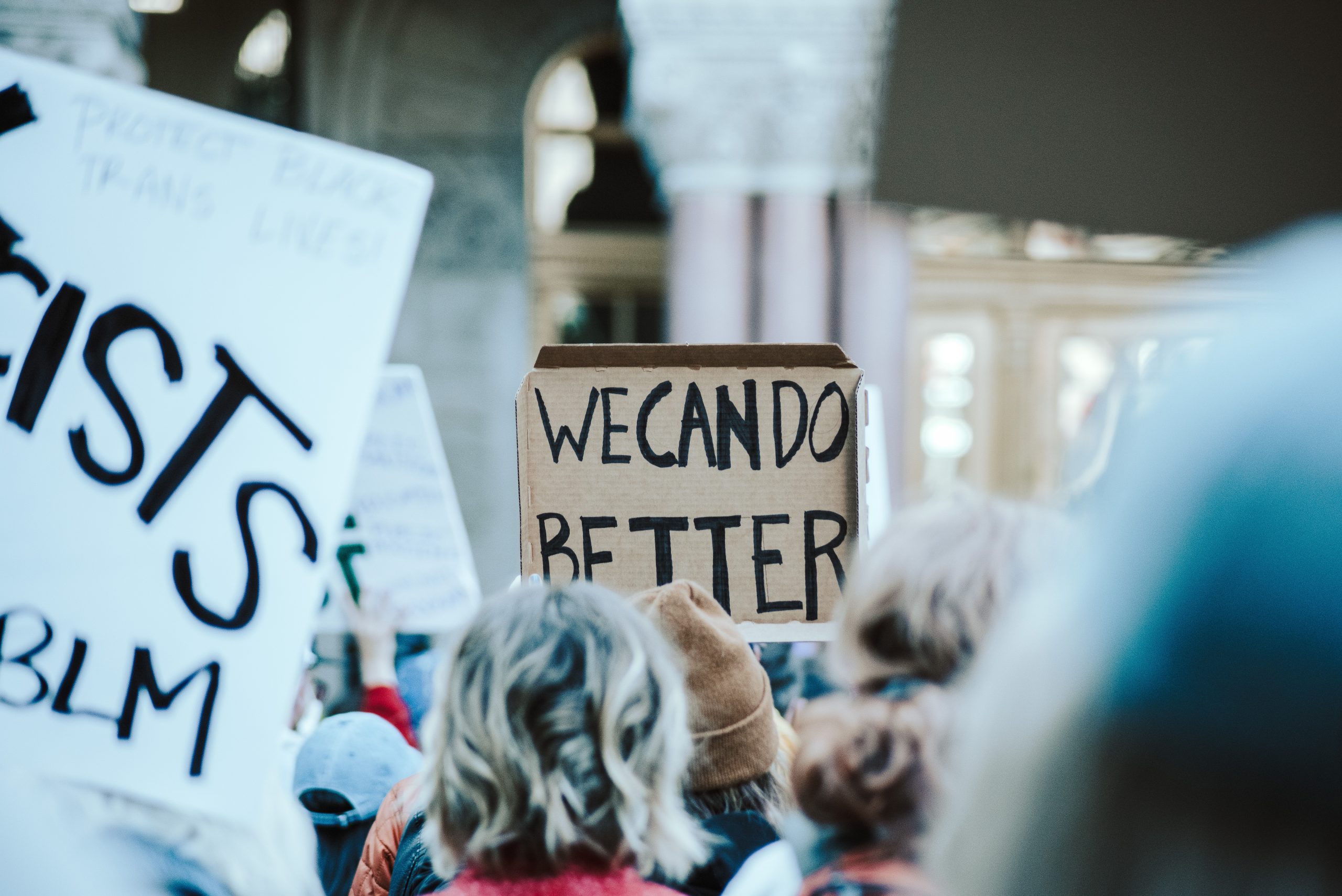Capitalism: When A Social Movement Becomes Profitable
Companies need a purpose in order to function, a fight to lead or a cause to support, young people are revolutionizing the world by speaking up about social issues. This mix sets the perfect stage for capitalism to absorb social movements.
To receive the Luxiders newsletter, sign up here.
The last few years have been marked by a wave of protests against causes such as police brutality, racism, abortion or sexism. Strong and vindictive messages flood the demonstrations and serve as a great support for causes that, thanks to the impact of social media, are spreading all over the world. It is common to see brands launching corporate statements and supporting such movements through Instagram and Twitter, while some people are grateful for these messages of support, there are those who accuse them of marketing using social movements.
Global Millennials Survey 2021, conducted by Deloitte, determined that Millennials and Generation Zs came of age while online platforms and social media gave them the ability and power to share their opinions, influence distant people and institutions, and question authority in new ways. These forces have shaped their worldviews, values, and behaviors. It also made it clear that both generations are channeling their energy into holding themselves and others accountable. They call out racism and sexism and shun companies and employers whose actions conflict with their personal values. Gen Z and millennials believe businesses are solely focused on their own agenda and have no other worry and motivation other than making profits.

NEW MOVEMENT = MORE PROFIT
Companies are often accused of taking advantage of a social movement to advertise their brand. When they talk about commercial messages or put commercial slang on the center of the campaign, they’re of little to no interest to society. However, when their approach is social, they gain interest. Brands come out as more authentic, but this corporate activism has to be based on real values.
Therefore, it’s no surprise that brands find themselves in the race to lead a cause and thus, being well spoken about and have a good concept of what they are and what they stand for. The problem begins when companies see this as a marketing opportunity and not a real responsibility.



THE LIST GOES ON
Examples of this situation are countless; many are repeated every year. It’s common to see companies dye their logos in rainbow colours during Pride month (June) as a sign of support for the community. Still, this is seen as pink capitalism that sells the communities’ demands since those companies have not been concerned about LGBTIQ+ rights during the year and forget everything they claim they do the minute July starts.
The feminist movement is another of the great causes that companies are capitalising on. Taking advantage of the pull of the cause, discounts and promotions on products and services emerge when 8th of March is around the corner. Beauty brands, fast food chains, fashion brands… the list goes on. Among the main complaints are the use of a protest movement for economic gain and not getting involved in the cause beyond this day. They also claim that there is nothing to celebrate, that there is no need to give anything to anyone and that the day marks years of fighting, thus it should not be congratulated.
The anti – racial movement also has a lot to offer. When the protests over the assassination of George Floyd took over the streets of America well – known brands showed their support. Nike changed “Just do it” to “For once don’t do it”, so far so good, ¿right? Well, a year ago the brand had to remove a limited-edition trainers for the 4thof July for displaying the flag of Betsy Ross, who is credited with the design depicting the thirteen early colonies, offensive because of its connection to slavery.
The American football player, Colin Kaepernick, was the one calling it out. His anti-racism claims cost him his NLF career by kneeling while the US anthem was played at games in protest. According to The Wall Street Journal, Kaepernick's intervention was key to the Independence Day trainer model being withdrawn before it was released. “Nike has chosen not to release the Air Max 1 Quick Strike Fourth of July as it featured the old version of the American flag”, declared the brand.


Companies have lost a bit of focus and, although brands need to be socially relevant, they cannot be a standard bearer for every cause on the appointed days and then act like none of it matters. When we talk about social movements, the focus should not be on who sells more or who looks better to the public, but who does something on a daily basis to defend these causes.

+ Words: Ane Briones, Luxiders Magazine
Journalism graduate | Basque Country based writer
IG: @anebriones




